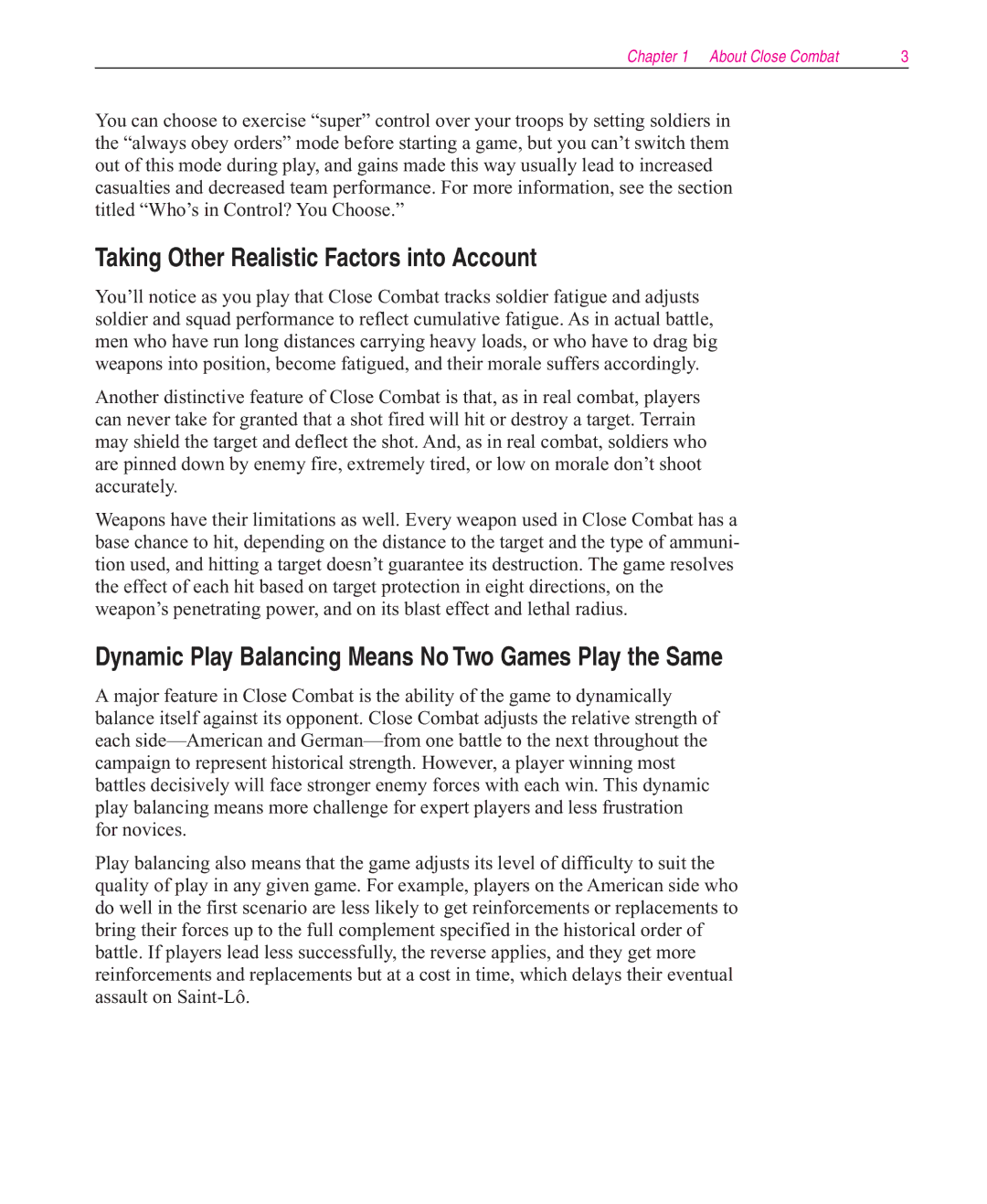Chapter 1 About Close Combat | 3 |
You can choose to exercise “super” control over your troops by setting soldiers in the “always obey orders” mode before starting a game, but you can’t switch them out of this mode during play, and gains made this way usually lead to increased casualties and decreased team performance. For more information, see the section titled “Who’s in Control? You Choose.”
Taking Other Realistic Factors into Account
You’ll notice as you play that Close Combat tracks soldier fatigue and adjusts soldier and squad performance to reflect cumulative fatigue. As in actual battle, men who have run long distances carrying heavy loads, or who have to drag big weapons into position, become fatigued, and their morale suffers accordingly.
Another distinctive feature of Close Combat is that, as in real combat, players can never take for granted that a shot fired will hit or destroy a target. Terrain may shield the target and deflect the shot. And, as in real combat, soldiers who are pinned down by enemy fire, extremely tired, or low on morale don’t shoot accurately.
Weapons have their limitations as well. Every weapon used in Close Combat has a base chance to hit, depending on the distance to the target and the type of ammuni- tion used, and hitting a target doesn’t guarantee its destruction. The game resolves the effect of each hit based on target protection in eight directions, on the weapon’s penetrating power, and on its blast effect and lethal radius.
Dynamic Play Balancing Means No Two Games Play the Same
A major feature in Close Combat is the ability of the game to dynamically balance itself against its opponent. Close Combat adjusts the relative strength of each
Play balancing also means that the game adjusts its level of difficulty to suit the quality of play in any given game. For example, players on the American side who do well in the first scenario are less likely to get reinforcements or replacements to bring their forces up to the full complement specified in the historical order of battle. If players lead less successfully, the reverse applies, and they get more reinforcements and replacements but at a cost in time, which delays their eventual assault on
